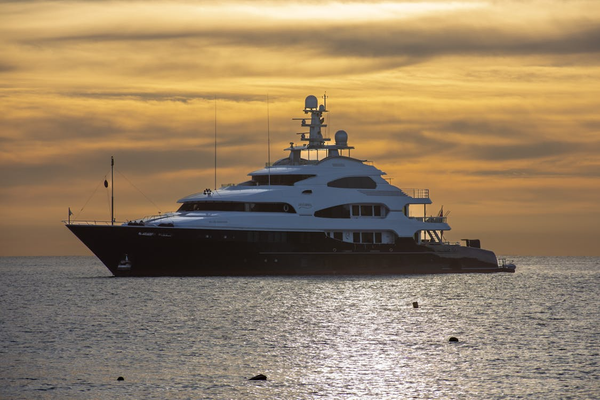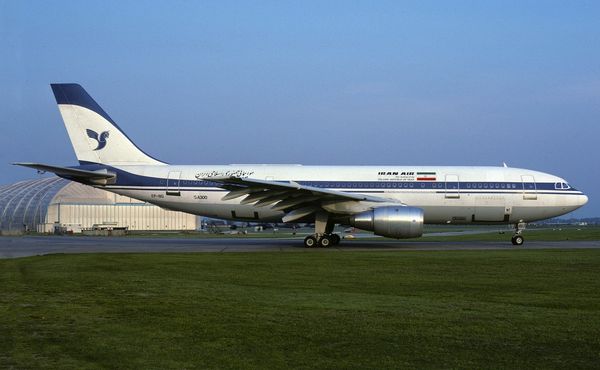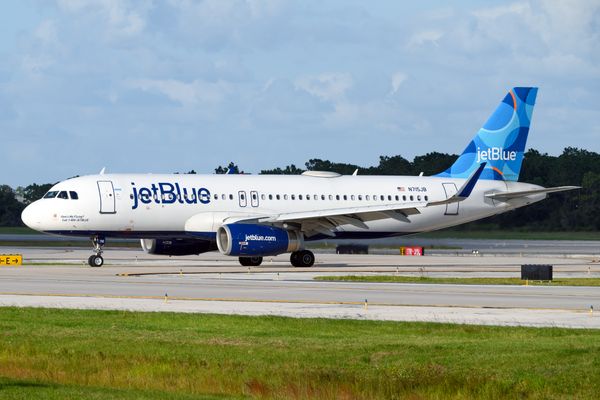Ampaire has achieved its first ground test utilizing pure 100% ASTM D7566 Sustainable Aviation Fuel (SAF) produced from electricity and carbon dioxide with their partner Dimensional Energy.

About Ampaire and Dimensional Energy
Ampaire was founded in 2016 to transform into the world's most reliable developer of practical, compelling electric aircraft by Kevin Noertker and Cory Combs. The company has developed a platform of electric propulsion technology, which works across various aircraft types, resulting in more efficient operations.
The AmpDrive system is being used in multiple hybrid-electric aircraft. With over 17,500 miles (28,164 kilometers) flown across their fleet, they hold a leading position and a 100% safety record. The company has stated that it "will be the first to reach the mass market with hybrid-electric technology, leading the industry a sustainable future."
Ampaire's technology can lower fuel by 90%, maintenance by 50%, and noise by 60%. These metrics mean the future of flights will be more frequent, convenient, and affordable than ever, and noise pollution will also be reduced.

Dimensional Energy was founded in 2016 as well with their CEO and co-founder Jason Salfi. It holds a globally leading role in carbon-to-value technology. It is a full-service technology and engineering firm that can support commercial deployments for project developers, industrial carbon emitters, and strategic partners.
Their hub, the Tucson Technology Center, is launching an array of products such as surf wax, food-grade distillate, and eSAF. It stated about their other facility:
"Located in the Energy Corridor in Houston, TX, Dimensional Energy has an experienced team of engineers and subject matter experts to support commercial-scale projects from FEL 0 through FID, construction, startup, workforce development, and commercial operations."
The company has invented catalysts and a technology platform to convert carbon dioxide into specific paraffins. The platform utilizing their catalysts holds the lowest carbon intensity, energy requirements per barrel installed, and best carbon efficiency for a power-to-liquids facility.
ASTM D7566 SAF
The SAF produced is synthetic paraffinic kerosene that is under the ASTM D7566 specifications, which address aviation turbine fuel containing synthesized hydrocarbon, "Specification for Aviation Turbine Fuels" is a globally used aviation fuel specification approved in 1959 for the first time.
Based on the data of Dimensional Energy from their Tucson pilot plant and completed simulations with the cooperation of a third party, LCA portrays a 93% reduction in carbon intensity compared to conventional Jet A.
Dimensional Energy states that e-fuels and SAF "use carbon dioxide from industry and the atmosphere so do not pose some of the same risks as bio-based alternatives."

The First Ground Test
Ampaire extensively tested the fuel using its Eco Caravan hybrid electric aircraft to verify the performance and viability of pure e-fuel SAF produced by Dimensional Energy. Ampaire and Dimensional Energy received an investment from Elemental Excelerator, a nonprofit investor in climate change technologies.
Amapaire's CEO and Co-Founder Kevin Noertker said about the ground testing:
"The successful ground test using pure SAF from Dimensional Energy marks a pivotal moment in our journey towards sustainable aviation. By showcasing the transformative efficiency gains achievable through hybrid electric propulsion, we are driving the future of eco-friendly air travel. For those already recognizing the potential of SAF, its integration into our hybrid electric aircraft enhances its appeal even further."

Dimensional Energy will significantly impact the future of aviation by adding crucial inventory to the world's availability of e-fuels. The CEO, Jason Salfi, stated:
"By combining Dimensional Energy e-fuels with Ampaire's aircraft technology that can reduce the amount of fuels combusted during flight, we quicken the pace up the steep curve of the energy transition and reduce the need for extraction faster. We are thrilled to collaborate with Ampaire on this groundbreaking initiative. Our partnership underscores our commitment to advancing sustainable aviation fuel solutions that offer tangible benefits to the aviation industry and contribute to a greener future."
Dawn Lippert, the CEO of Elemental Excelerator, added on their collaboration with the two companies and for the announcement on February 29:
"Today's announcement by two Elemental portfolio companies, both leaders in their fields, is exactly the kind of collaboration we imagined when investing in Ampaire and Dimensional Energy. Their innovations reduce pollution and noise in neighborhoods around airports, and make possible a cleaner way to fly."

The ECO Caravan
Ampaire's Eco Caravan is a hybrid-electric design with a range of 1,100 sm (959 nm) and a payload of 2,500 pounds (1,134 kilograms). In 2022, in a statement, the manufacturer said the aircraft could be the first electrical regional aircraft to operate commercially. It is equipped with Ampaire's special AMP-H570 AMP Drive hybrid-electric propulsion unit. According to the company, the system will reduce fuel consumption and emissions by 50 to 70 percent compared to Pratt & Whitney PT6 engines.
The FAA certification is expected this year. The recent ground test is not the only and the biggest achievement of the company in the past few months. They have also achieved a 12-hour, 1,375 sm (1,195 nm) flight of its Electrical EEL demonstrator. The flight was a great milestone for hybrid-electric aircraft endurance. The EEL is a modified Cessna 337 Skymaster, including an AMP-H570 AMP Drive.

Ampaire and EEL completed the first trial of a hybrid-electric aircraft along an actual airline route in 2020 in partnership with Hawaii's Mokulele Airlines. The Eco Caravan achieved its maiden voyage in 2022. Ampaire is also working on several projects with NASA, including installing its propulsion systems aboard a Twin Otter DHC6. Collaborating on the project Eco Otter.

During this period, various airlines are stepping up their usage and testing of SAF. According to the International Air Transport Association (IATA), SAF production tripled from 2021 to 2022. Many developments, utilizations, and tests for the SAF are being done across industries. The importance of sustainability in aviation is getting the attention it requires since aviation accounts for around 2.5% of global carbon dioxide emissions. While the projects are ongoing, the SAF promises a better future for the relationship between the environment and aviation.
My Unexpectedly Cheap Last-Minute Getaway with JetBlue Airlines » Mixed Signals: The Tragic Story of Iran Air Flight 655 » Essential Legal Tips for Tourists Chartering a Yacht in Dubai »
Comments (0)
Add Your Comment
SHARE
TAGS
NEWS Ampaire Dimensional Energy SAF e-Fuel Sustainability Sustainable Aviation Fuel Future Innovation Startup TechnologyRECENTLY PUBLISHED
 Essential Legal Tips for Tourists Chartering a Yacht in Dubai
Discover how yacht rentals in Dubai are regulated and learn what every tourist should know about contracts, insurance, and taxes before setting sail.
TRIP REPORTS
READ MORE »
Essential Legal Tips for Tourists Chartering a Yacht in Dubai
Discover how yacht rentals in Dubai are regulated and learn what every tourist should know about contracts, insurance, and taxes before setting sail.
TRIP REPORTS
READ MORE »
 Mixed Signals: The Tragic Story of Iran Air Flight 655
What would have otherwise been a routine passenger flight across the Strait of Hormuz culminated in a heartbreaking tragedy, all because of a costly system misunderstanding by an external party. This is the tragic story of Iran Air Flight 655.
STORIES
READ MORE »
Mixed Signals: The Tragic Story of Iran Air Flight 655
What would have otherwise been a routine passenger flight across the Strait of Hormuz culminated in a heartbreaking tragedy, all because of a costly system misunderstanding by an external party. This is the tragic story of Iran Air Flight 655.
STORIES
READ MORE »
 My Unexpectedly Cheap Last-Minute Getaway with JetBlue Airlines
My name is Daniel Moreno. I live in Tampa, Florida, and I work as a logistics coordinator at a small distribution company. I had to book a JetBlue Airlines flight at the last minute. I was sure the price would be high because that’s usually what happens with late bookings within the United States. But the final cost surprised me — the ticket was much cheaper than I expected.
TRIP REPORTS
READ MORE »
My Unexpectedly Cheap Last-Minute Getaway with JetBlue Airlines
My name is Daniel Moreno. I live in Tampa, Florida, and I work as a logistics coordinator at a small distribution company. I had to book a JetBlue Airlines flight at the last minute. I was sure the price would be high because that’s usually what happens with late bookings within the United States. But the final cost surprised me — the ticket was much cheaper than I expected.
TRIP REPORTS
READ MORE »



